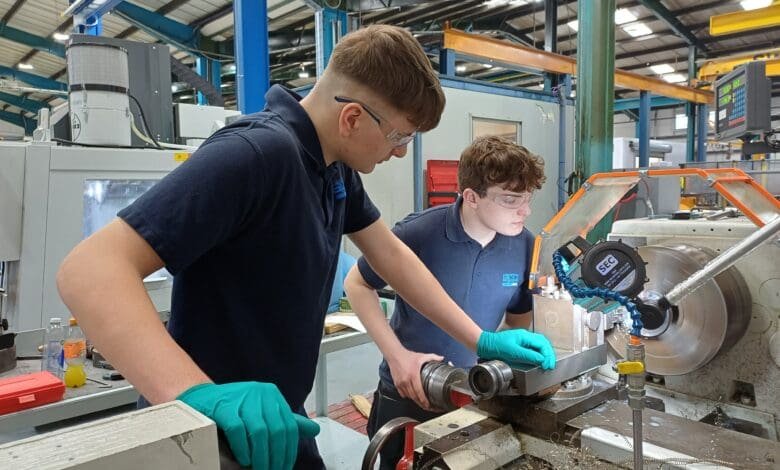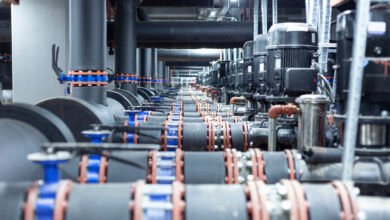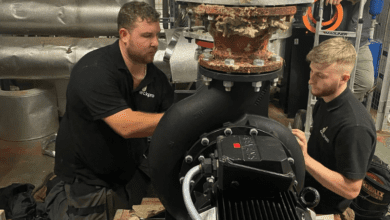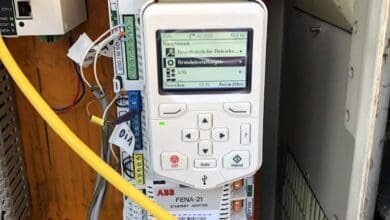
Ben Warren, Rising Star award winner at the 2024 Pump Industry Awards, and Team Leader of SPP Pumps’ innovative Future Cell training programme, looks at how considered and well-invested training programmes can overcome the skills shortage and provide engineering opportunities to both apprentices and existing employees.
The skills shortage in engineering services is very real and is hitting hard in some sectors of the economy. In particular, the Engineering Construction Industry Training Board (ECITB) has highlighted a number of workforce challenges facing the water treatment and oil and gas sectors due to an ageing workforce. An estimated 19.5% of engineers currently working in the UK are expected to retire by 2026. Ensuring that the UK’s future engineering needs are met is going to call for significant investment in skills among the next generation of engineers. While industry bodies like Engineering UK and others are calling for clear and properly funded STEM skills plans, many commercial organisations are boosting the skills of their own employees through innovative training programmes.
SPP Pumps is combatting the skills shortage challenges with its ‘Future Cell’ initiative. This new training area is aimed at both apprentices and existing employees who want to reskill into an engineering role or simply take the opportunity to learn from experienced colleagues.
Designed, planned and implemented by SPP’s machine shop team, Future Cell’s initial objective was to provide an opportunity to extend knowledge and skills through a series of challenges, working on real-life pumping products and projects.
Investing over half a million pounds in specific equipment and developing learning programmes, the project was designed with a practical focus, ensuring that participants would gain hands-on experience and recognised qualifications through work-based operations in a fully equipped operational machining cell.
Two new CNC machines with remote monitoring and wireless probing help enable trainees to develop key programming and machining skills while producing critical pump components. The success of the initial three-month project proved the value of such an approach and secured further investment in equipment, with a state-of-the-art Electric Discharge Machining (EDM) tool recently being added to the programme.
And, with the purchase of three conventional machines, trainees are given the opportunity to become proficient in the underpinning knowledge essential to CNC machining and production engineering. In addition, a bespoke quality area in the machining cell gives apprentices the capability to inspect both their own and others’ work to both SPP’s and broader industry standards – essential for safe, high-quality operations.
Future Cell was launched in late 2023, and within its first three months had exceeded its six-month productivity goal.
People at the heart
A large part of the programme’s success was ensuring that the project leader had personal experience of being an apprentice. Having joined SPP Pumps at 16 as a mechanical engineering apprentice and benefiting from outstanding training to become a multi-skilled machinist, I was humbly selected to lead the Future Cell programme.
As its name suggests, Future Cell has a clear objective of developing the next generation of skilled machinists. With the help of other experienced members of our team, we aim to offer a versatile training environment covering all key machining disciplines while producing high-quality components and reducing sub-contracting costs.
We’ve created a structured training plan that ensures all apprentices cover the essential skills. We identify individuals’ strengths and weaknesses and tailor their training accordingly, ensuring they gain the necessary knowledge and confidence to make technical decisions to help optimise the process’ capacity and productivity.
We are keen to raise the aspirations, employability and opportunities among local young people, as well as the wider community. Future Cell provides a golden opportunity for young men and women interested in engineering – and specifically the pumping sector.
The machining team has been engendering excitement and interest in engineering in the local community through primary school visits, secondary school careers events and scouting engagements. Together with other STEM initiatives, the Future Cell initiative is the most recent investment in SPP’s wider project to address and hopefully head off the future skills shortage.
With provisions for all ages often featuring discussions around imagining a world without pumps, the team has sought to increase understanding that a career in engineering, and more specifically, the pumping industry, is available and rewarding.







